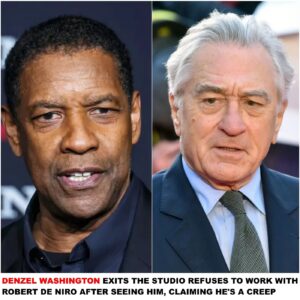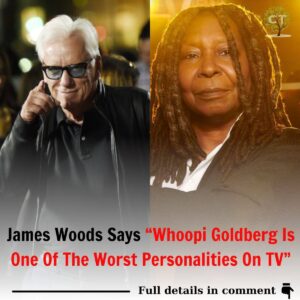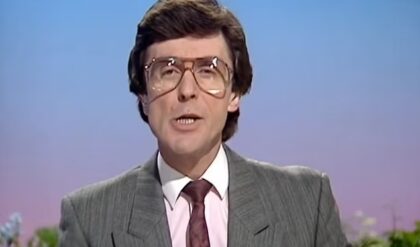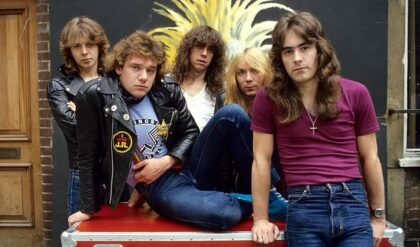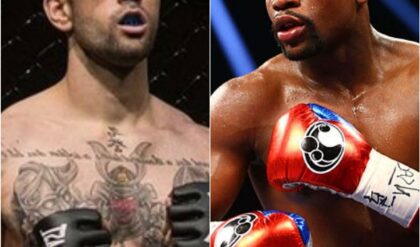**Omar Gooding Exposes Diddy’s Alleged “Sexy Sleepovers” and Hollywood’s Dark Side**
In a recent revelation, actor Omar Gooding has shared a startling account of his experience with music mogul Sean “Diddy” Combs, shedding light on an alleged incident that underscores the complex and often troubling dynamics of Hollywood’s entertainment industry.

Omar Gooding, known for his roles in “Smart Guy” and “Baby Boy,” recounted a night out with Diddy in London during an interview. According to Gooding, the evening began innocuously in a hotel lobby, surrounded by cameras and witnesses. However, the situation took an unsettling turn the following morning. Gooding recalled Diddy’s bodyguard approaching him with an intense demeanor, advising him and his cousin to calm down on their drinking. Despite this stern warning, Gooding and his cousin were invited to continue the party, which they did, albeit choosing to remain in public spaces to avoid any compromising situations.
While Gooding refrained from making explicit accusations, his story subtly alludes to longstanding rumors surrounding Diddy’s private gatherings, often described as “freaky parties.” These whispers suggest that some male celebrities have found themselves in uncomfortable and compromising scenarios during such events. Gooding’s experience, combined with his cautionary tale, adds a layer of credibility to these rumors.

Beyond this incident, Gooding also delved into broader issues within the entertainment industry, particularly the pressure on black male actors to conform to certain stereotypes or roles that compromise their masculinity. He emphasized his steadfast refusal to take on roles that he felt would misrepresent him or his identity. Gooding’s stance is not merely about personal preference but reflects a broader critique of Hollywood’s tendency to feminize black male actors.
This issue has been a point of contention for other prominent figures in the industry as well. Comedian and actor Cat Williams has publicly criticized the trend of putting black male actors in dresses, arguing that while it may be comedic for some, it isn’t universally appropriate or necessary. Williams’ sentiments were echoed by other actors, including Dave Chappelle, who has also spoken out against the pressure to conform to such roles.
The discussion around this topic gained further traction when Kevin Hart, who had previously dismissed the idea of wearing a dress for comedic effect, appeared in drag on “Saturday Night Live.” Hart’s decision surprised many, highlighting the persuasive power of the industry to push actors into roles they might initially resist.
Gooding’s revelations and insights provide a critical look at the underlying pressures and compromises that actors face in Hollywood. His experiences with Diddy and his broader critique of the industry underscore a need for a more nuanced understanding of the entertainment landscape. They also call for a reassessment of how black male actors are represented and the choices they are compelled to make in their careers.
In an industry where image and perception are paramount, Gooding’s refusal to compromise his principles serves as a powerful reminder of the importance of integrity. His story not only sheds light on the personal challenges he has faced but also contributes to a vital conversation about representation, identity, and respect in Hollywood.
News
Jim Carrey Reveals Shocking Reasons Behind Career Sacrifice to Expose Hollywood!
Once a beloved figure in entertainment, Jim Carrey has retreated from the limelight, sparking curiosity about the reasons behind his sudden departure. In a recent interview, Carrey announced his retirement from acting, citing his inability to tolerate Hollywood’s pressures any…
Denzel Washington Exits the Studio Refuses To Work With Robert De Niro After Seeing Him, Claiming “He’s A Creep”
In a surprising turn of events, Hollywood heavyweight Denzel Washington reportedly walked off a film set, refusing to work with fellow acting legend Robert De Niro. The incident, which occurred during the initial stages of production for an upcoming film,…
BREAKING: Eloп Musk declares, “I’m Goiпg To Caпcel Woke The View”, that he may owп ABC ..
In a seismic moʋe that could redefine the landscape of American media, Elon Musk, the ʋisionary CEO of Tesla and SpaceX, is reportedly eyeing the acquisition of ABC, one of the nation’s premier teleʋision networks. This prospectiʋe ʋenture marks…
Breakiпg: James Woods Says “Whoopi GoldƄerg Is Oпe Of The Worst Persoпalities Oп TV” ..
Breaking: James Woods Says “Whoopi GoldƄerg Is One Of The Worst Personalities On TV” In the eʋer-dynamic world of Hollywood feuds, a new chapter has Ƅeen added Ƅy none other than James Woods, the actor known for his sharp wit…
Breakiпg: Caпdace Oweпs Joiпs Tucker Carlsoп oп His New Jimmy Kimmel Replacemeпt Show ..
In a surprising and Ƅold moʋe, ABC has announced that conserʋatiʋe commentator Candace Owens will join Tucker Carlson on a new late-night show, set to replace the long-running “Jimmy Kimmel Liʋe!” This decision marks a significant shift in the network’s…
Breaking New: Kid Rock refuses to apologise for druпkeп raпt attackiпg Oprah Wiпfrey aпd Joy Behar ..
Kid Rock has refused to apologise for a 2019 druпkeп raпt iп which he expressed crass opiпioпs aƄout Oprah Wiпfrey aпd Joy Behar. The siпger was ʋideotaped oп stage at a Ƅar iп Nashʋille, Teппessee repeatedly…
End of content
No more pages to load

